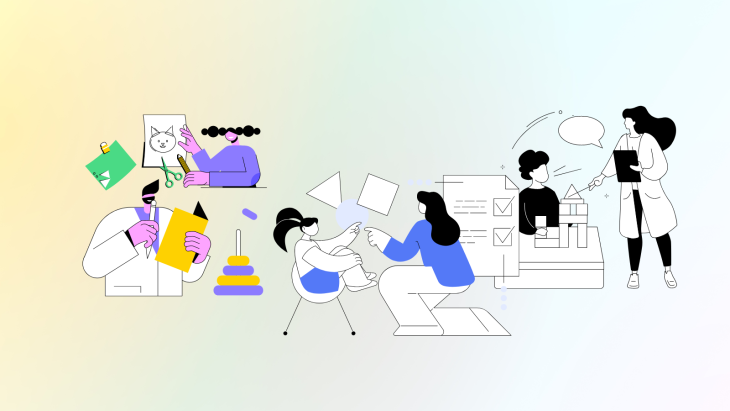Recent Posts
- Men masking mental health issues. Why is men's mental health declining in the US?
- I am hesitating on joining the armed forces! Are people in the armed forces more prone to mental health problems?
- Getting acquainted with the 7 types of anxiety disorders. What do I need to know about them?
- My husband needs to recover from alcohol dependence and mental health issues. How can I help him?
- Are there good and bad debts? And how does debt impact mental health?
Most Popular
What do parents need to know about developmental screenings?

“A child must know that he is a miracle, that since the beginning of the world there hasn’t been, and until the end of the world there will not be, another child like him.” ~ Pablo Casals
This miracle of a child’s life, development and learning happens the fastest in the first five years of their lives.
Why are developmental screenings important?
They develop in their physical, mental, social and emotional aspects in many ways that are easily noticed by parents. Many parents are thus interested in knowing whether the developmental milestones their kids have are happening at the appropriate timeline.
In addition, parents also want to be aware of the signs of holistic development, and of their children’s strengths too, so that they can monitor and encourage them in their children.
Lastly, knowing more about these milestones gives parents opportunities to decide if they need further evaluation by experts in child development. For children who eventually are identified to be affected by delays in their normal development, statistics indicate that only 2 to 3 in 10 of them get the chance for early identification of a developmental delay.
For these reasons, developmental screenings are endorsed and are easily available tools that provide parents with guidelines on how best to support their children.
Who does developmental screenings and when?
Developmental screenings may look like answering a questionnaire about your child’s developmental milestones, or depending on the child’s age, they may take a test at the doctor’s office. They may be given by a healthcare provider, a specialized teacher, or other trained professional.
These tools have research-based questions that aim to take a look at your child’s language, thinking, actions, movement, and emotions.
It is recommended that a child undergoes screening during their normal regular checkup with the physician at 9 months, 18 months, and 30 months of age.
What developmental screenings are not.
They are not diagnostic tools for problems in delayed development, and other childhood conditions.
Rather, developmental screenings are checks to help you know whether your child needs extra support or for further evaluation by specialists like developmental pediatricians and child psychologists.
Tips for parents about developmental screening
- You may have concerns or questions for your doctor. Write them down before going to the clinic. Include the things you are curious about in child development.
- Think about your own observations of your child and write down any specific moments that you consider significant in the way they talk, especially when interacting with others, how they play, and how they learn.
- You can expect to learn lots of things during the developmental screening session, so consider how you want to take the information in, so that you can use what you learn to make decisions when needed.
As getting developmental screenings are health-seeking activities and are geared towards wellness, parents can avail of them at various life stages of their children in order to better provide them with insight on how to support their child’s growth and development.
Get the latest updates on the available healthcare and mental health professional jobs across the US and connect with the opportunity that will set up your career to success!








Comments